Essay: The scene at home and abroad
When Deepti Kapoor was done hammering out the final draft of her first novel, A Bad Character, she found it much easier to look to the US and UK— the two countries which exert the greatest literary influence on the rest of the world — in order to get published. Even though the journalist-turned-author had spent over a decade in the capital, where she studied journalism and Social Psychology at the University of Delhi, she felt she was a total outsider to the Indian literary scene, partly because she grew up in various places, including Bombay, Dehradun, and Bahrain. “There wasn’t any feeling of being part of it,” Kapoor tells Hindustan Times.
Looking back, Kapoor recollects how she had submitted the manuscript, somewhat naively, to David Godwin, the star literary agent credited with discovering Arundhati Roy, and the go-to-guy for Indian authors trying to crack the international market; he has also represented Vikram Seth, Aravind Adiga and Kiran Desai. She handed over the manuscript to Godwin in London in 2012. The astute agent, who got the staggering £250,000 advance for Vikram Seth’s A Suitable Boy in 1993, sold her novel to Knopf in the US, which published it in 2015. A year before, it was published in India in slightly different form by Hamish Hamilton, an imprint of Penguin Books India, and subsequently in the UK by Jonathan Cape, an imprint of Random House Group Limited, London.
A tribute to Marguerite Duras’ The Lover, Kapoor’s debut revolved around a single woman navigating the quagmire of drugs, sex and abuse. Her publisher described it as an unforgettable hymn to a dangerous and exhilarating city (Delhi, where it is set in), and a portrait of desire and its consequences. “It was a small book, and not particularly commercial, so there was almost no publicity. And the sales reflected that. I was happy just to be published at all,” says Kapoor. When A Bad Character came out, she had been living in Goa. Currently based in Portugal, where she lives with her English writer and photographer husband, she is represented by Anna Stein of International Creative Management (ICM) Partners. Her second novel, Age of Vice, a mob saga set against the backdrop of modern India, is slated for release by Riverhead — which acquired it in a multimillion-dollar deal for the US rights — on January 3, 2023. The 550-page first instalment of a trilogy, Age of Vice¸ which has just been published in India by Juggernaut Books, has sold rights in 15 territories and will be available in 20 countries. What’s more, it is also being adapted for the screen, with a television series in the pipeline; the 20-way bidding war for the film rights was won by FX and Fox 21.
Kapoor’s meteoric success with just two novels, written within the span of a decade, is the stuff every writer’s dreams are made of. Her accomplishment is also a hat tip to her agent, Anna Stein. “She has championed me, challenged me when needed, protected me all the time, and worked an intelligent strategy to make sure my novel sold to the best publisher when it was ready,” says Kapoor.
The route she followed to get a toehold, and subsequently make a splash, in the global literary arena has been an easier way out for English-language writers to taste commercial success for decades: publishing giants in the US and UK have the wherewithal, and the marketing muscle, to push a particular title in multiple markets. Riverhead, for instance, has published a wide range of writers with global readership — from George Saunders and Khaled Hosseini to Junot Díaz and Marlon James.
Getting Published: How Books Cross Borders
Every writer’s publishing journey is different. While some writers, both desi and diasporic, breeze through the process to find a home for their books in the country of their residence or on foreign shores, for many others the breakthroughs happen after the frustrating vagaries of rejection — they are both fortuitous and serendipitous.
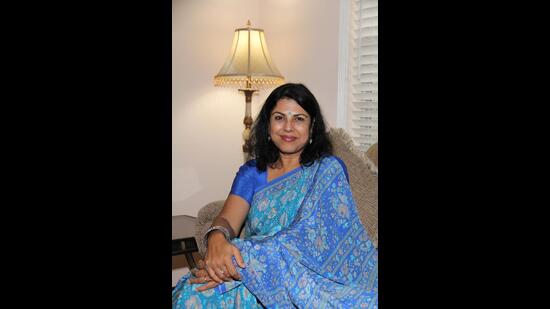
Bestselling author Chitra Banerjee Divakaruni was just 20 when she moved to the US in 1976 to earn her Master’s degree. It was during her tenure as a teacher at a college in the US that she was introduced to her agent, Sandra Dijkstra, by a colleague who had read and liked her work. Since then, Dijkstra has handled all of Divakaruni’s contracts — from her debut collection of stories, From Arranged Marriage: Stories (1995) to her latest novel, Independence (HarperCollins India), a story of three sisters whose lives are transformed after India is freed from the yoke of imperialism. “This is helpful because I don’t understand all the legal language and its implications,” says Divakaruni.
Dubai-based Indian-American author Avni Doshi, who was shortlisted for the 2019 Booker Prize for her debut novel, Burnt Sugar, published in India as Girl in White Cotton, worked with a UK-based agent for a few years. When the two went their separate ways, Doshi wasn’t sure what to do next. It was around then that Rijula Das — who made her own fictional debut in 2021 with A Death in Shonagachhi, a portrayal of the lives of sex workers — offered to introduce Doshi to her Indian agent, Kanishka Gupta. Soon, Writer’s Side, the literary agency run by Gupta, sold the manuscript to HarperCollins India. “Rahul Soni, my editor, believed the book had the potential to sell in the UK and US. He introduced me to agent Maria Cardona of Pontas Agency in Barcelona,” says Doshi. After Maria signed her, Doshi’s book sold in the UK, US, and after the Booker shortlist, it was published in about 25 other territories, and languages.
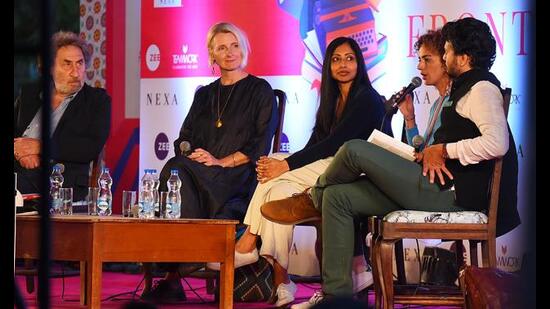
Anuradha Roy, who was longlisted for the Booker Prize for her third novel, Sleeping on Jupiter, didn’t have it this easy when she made her debut. An Atlas of Impossible Longing (2008), which catapulted her to literary stardom, was rejected by 16 agents and publishers abroad before it was eventually picked up by Christopher MacLehose, who had just started his own imprint, MacLehose Press, in the UK. Roy had met MacLehose, a former publisher associated with Harvill Press, at the London Book Fair a year after these rejections. “He read fifty pages of my manuscript at the fair, asked to read the entire thing, and signed me on after he had read the rest,” says Roy, who was longlisted for the 2015 Man Booker Prize for Sleeping on Jupiter (Hachette India).
Roy’s debut, published by the Free Press in the US, subsequently went into 16 translations abroad. While all of her novels have been published in the UK by MacLehose, they have been picked by various publishing houses, including Simon & Schuster, Graywolf and HarperCollins, in the US. Roy must be one of the very few Indian authors who doesn’t have an agent, carving out an international space for her novels with the single-minded devotion of her publisher, MacLehose. She keeps South Asia rights to herself so she could go to a publisher of her choice in India.
Anjum Hasan, whose new novel, History’s Angel, was acquired by Bloomsbury in a three-way auction, had a longtime London-based agent, who placed her books in territories such as Australia and Scandinavia. It was after she moved to Jacaranda Agency, run by Bengaluru-based agent Jayapriya Vasudevan, that she got a more comprehensive international deal. History’s Angel will appear from Bloomsbury UK, US and India in the summer of 2023. Hasan says that while it’s partly the agent’s resourcefulness, the good deal is perhaps also to do with timing: History’s Angel, a novel about the schisms between contemporary Indian public and private lives, seems to have struck a chord with the publisher with a substantial global presence.
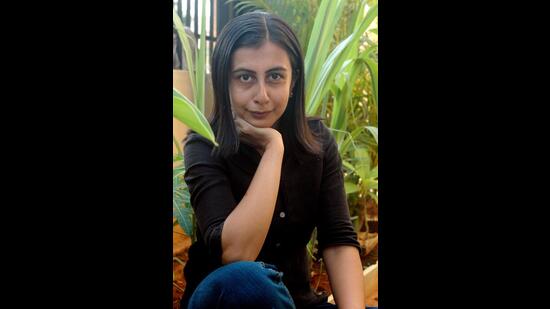
Like Hasan, Kochi-based Anees Salim, too, is taking his writing to the world. His seventh novel, The Bellboy, has recently been released in the UK by Holland House. All of Salim’s previous titles were managed by Gupta. Two of his early novels (The Vicks Mango Tree and Tales From A Vending Machine) were published by HarperCollins). And the other two (The Blind Lady’s Descendants and Vanity Bagh were sold to Amaryllis and Picador India, respectively. In 2015, Penguin Random House acquired Salim in a deal brokered by Gupta to publish The Small-Town Sea (2017) and The Odd Book of Baby Names (2021).
If established writers like Hasan and Salim are going transnational only after having built an audience of loyal readers in India, the debutantes are having a go at it with their very first book. Based in Wellington (New Zealand), Rijula Das started the hunt for an agent to represent her work in the international market after A Death in Shonagachhi, which was published by Picador/PanMacmillan India, received rave reviews. While Gupta represents her book in the Indian subcontinent territory, world rights are managed by Maria Cardona Serra at Pontas Agency. Anna Soler Pont handles her AV rights.
Rijula’s novel was published in the US and other world territories as Small Deaths by Amazon Crossing, Amazon’s translation imprint, on September 13. While Russian rights have been bought by Ripol, French rights have been sold to Éditions du Seuil for publication in 2023. Drishyam Films has bought the adaptation rights for the silver screen, and a limited series based on the novel is also currently in the making. “Maria submitted my work to editors who she thought would be the right fit. Before long, along with rejections, I had a pre-emptive offer — valid for 24 hours, it indicates that the editor is making the best possible offer in their power and wishes not to go into auction. After discussing with my agent, we accepted this deal,” says Das.
Sonal Kohli, who grew up in Delhi and now lives in Washington DC, worked relentlessly for a year, querying and submitting to agents both in the UK and the US, but in the end when she almost gave up on the hope of landing an agent and a publishing deal outside the subcontinent, things happened quite serendipitously. After her debut collection of powerful short stories, The House Next to the Factory, was published by HarperCollins India and received good press, a UK publisher approached her to read the book and to enquire about the overseas rights. Within two days, the publisher made her an offer. “At that point, I requested him to give me some time while I went back and re-approached a couple of agents, who had already seen the manuscript and had responded favourably, but wanted me to make certain edits, some of which I actually ended up incorporating in the Indian edition,” says Kohli.
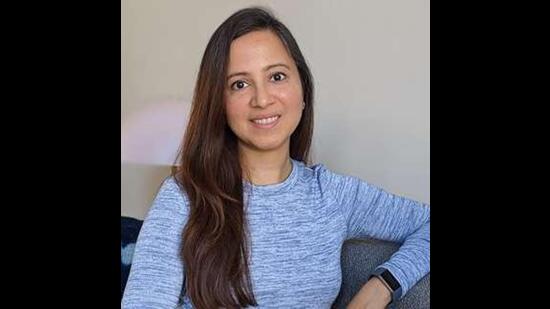
In a month’s time, she had both a US agent and a UK publisher. She came to know about the NYC-based Robin Straus Agency (RSA), which represents her work, through internet research. “RSA also represents the estates of RK Narayan, whose work I admire, and that was one of the first things that drew me to the agency,” says Kohli, whose book was published by Swift Press (UK) in November. She held on to the US and Canada rights to the book and sold only the UK and Commonwealth rights so that she could have a chance to find a publisher in the States.
Anindita Ghose, among the most talked-about debut authors from India in 2021, reached out to her international agents in December 2020 when HarperCollins India announced that it’ll publish her novel, The Illuminated, in July 2021. She was signed on by David Godwin in April 2021, but the UK deal happened nine months later — in January 2022. Her novel is forthcoming from Head of Zeus, an independent press in the UK which was acquired by Bloomsbury last year, in January 2023. When Ghose was pitching her novel to international publishers during the pandemic, they were reeling under a Covid-induced backlog, which they needed to clear. In the uncertain times, they needed to hedge their losses by picking more “bankable names”. “I wasn’t very confident that my book would be published abroad at all, but David remained optimistic. I feel I got lucky with the best of both worlds. I’m not very well-versed with the mechanics of the international publishing scene, but several authors have told me that independent presses are the way to go for the UK market as they pay much more attention to your books and go out of their way to champion them,” says Ghose.

Before Ghose, Prayaag Akbar had made his debut with Leila, a dystopian novel, and an indictment of India’s political degeneration and growing social chasms, which was published in the subcontinent by Simon & Schuster and in the UK by Faber & Faber in 2017. When it was in the works, Prayaag happened to mention it to a friend, and a colleague put him in touch with Shruti Debi of the Debi Agency. “I value her work as an editor, first and foremost. She read early drafts and sometimes helped me see what I was actually writing about. She certainly knows which sections of a draft are not working. If I can cut that flab out at an early stage, the final effort turns out better,” he says. Prayaag’s route to getting published in the UK was through Debi Agency, which has partners in England and New York who sent the book around to publishers there.
**
The publishing industry: A leviathan
Prayaag’s publisher, Simon & Schuster, a subsidiary of Paramount Global, has a strong footprint around the world with 50 imprints. It recently foiled the acquisition bid by Penguin Random House, the world’s largest book publisher with over 100 imprints, which publishes more than 2,000 titles a year. Weeks after a federal judge blocked Penguin Random House’s bid to buy Simon & Schuster — one of its main rivals, the publishing behemoth owned by the German group Bertelsmann scrapped the $2.2 billion merger deal.
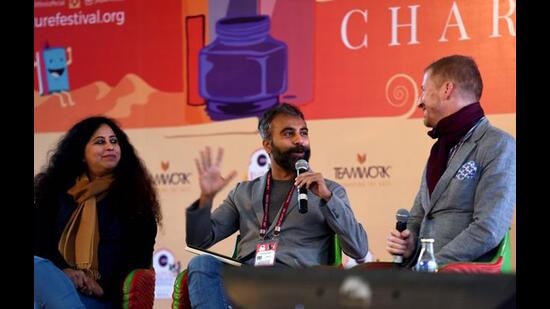
Simon & Schuster’s win in the takeover battle comes at a time when the global publishing industry has witnessed concerted recovery in the wake of the pandemic as a recent report by the World Intellectual Property Organisation, one of the 15 specialized agencies of the United Nations, has revealed. Out of the UN’s 193 member states, 23 countries were part of a recent survey on publishing; they included the US and the UK. Collectively, these 23 countries made $71.6 billion in revenue last year compared to the 2020’s tally of $64.4bn. The convalescence in the US and Italy has been more notable; they have seen their publishing industry grow by 13.6 and 12.2 per cent, respectively, in the 2020-2021 period.
The Indian publishing industry, which has been slowly and steadily shaking off the blues caused by the coronavirus, is a leviathan unto itself. Trade book publishing in India constitutes a small fraction of the incredibly fragmented market with over 9,000 publishers. Dominated by educational book publishers, like Sage Publishing, Oxford University Press and S Chand & Co Ltd, the industry creates employment for more than 12 million people. It was valued at over ₹500 billion in 2019 and the forecast for 2024 predicts its continued growth: its estimated market size is set to touch ₹781 billion. Since India allows 100 per cent foreign direct investment (FDI) in the publishing sector, most top English publishers in India are subsidiaries of foreign companies.
**
It’s not the geography, stupid, but the story
The big and burgeoning book publishing market in India has emerged as the third biggest publishing hub after the US and the UK. Several authors getting published here also aspire to take their works to the overseas market, especially in the US and the UK, at some point. It’s their rite of passage, an acme of their ambition as an author yearning for visibility and big advances. Before this year’s Booker Prize-winning novel, Sri Lankan author Shehan Karunatilaka’s The Seven Moons of Maali Almeida, was published in the UK by Sort of Books, it came out under a different title, Chats with the Dead, in India.
For many writers, crossing over to another territory remains hard and littered with little struggles even though publishing literary agents have become proactive in recent years. It took Abdullah Khan, the author of Patna Blues (2018), over 10 years and more than 2,000 pitches/emails to finally find an agent in the US. “The US is the most difficult market to get published in than the UK. I found an agent only after my first book got published,” says Khan. His agent, Marly Rusoff of Marly Rusoff & Associates Inc, New York, has been pitching his first novel, as well as his forthcoming books, since last year. Someday, soon, he hopes things will work out.
Khan’s struggle symbolises the travails of every debut writer trying to find new readers abroad. However, things are different for most diaspora writers. 16 years ago, things happened in reverse for Shrabani Basu, who has been living in London since 1987. She sold the UK rights of her debut, Spy Princess: The Life of Noor Inayat Khan (2006), first and then Indian rights to Roli Books later. She didn’t have an agent for her first two books and signed on the dotted line in the contract. It was only later that she realised she had given away 50 per cent of the dramatic rights to the publishers, and so made very little herself. “I am wiser now about contracts,” says Basu, who is currently represented by Valerie Hoskins. “She took over from my earlier agent when I received several requests from major Hollywood studios for film rights for Victoria & Abdul (2010) and he requested her help as it was going to be a big contract,” says Basu.
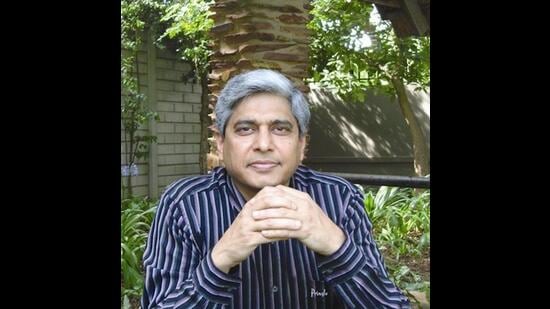
Former diplomat and author Vikas Swarup didn’t have to struggle to get his first book Q&A (2005) published. After he had written four-and-a-half chapters during his posting in London, he sent it to 10 agents. When he didn’t hear back from anyone for about a month, he trawled the Internet where he met his first agent, Peter Buckman of The Ampersand agency, who found a publisher within a few months. “Books cross boundaries very easily if the content is good; any publisher would be willing to publish it. All publishers are hungry for good content; the only issue is that in India the culture of agenting is not so widespread whereas abroad the publisher will not look at your MS until it comes through an agent as it means that pre-vetting process has been done,” says Swarup, whose book was first published in the UK by Random House (now Penguin Random House) in 2005 and subsequently in the US and other regions.
If Swarup turned to Google for advice, in more recent years, writers have benefited from the ecosystem offered by creative writing programmes. After she finished her MFA from Columbia University, Diksha Basu ventured out into the world armed with a manuscript of what she thought could be a collection of short stories. A faculty member shared a list of literary agents with her. She reached out to Adam Eaglin at the Elyse Cheney Agency. His feedback transformed how she saw her book. Over the next two years, she worked closely with him to turn her collection of stories into a novel: Windfall, a comedy of manners centered on a family struggling to upgrade their lives in modern India, was released in the subcontinent in 2017. In the UK, it was published by Crown, an indie publishing house. “My agent allows me to focus entirely on the creative part of the work and I am always grateful to have him on my side. We have worked together for over seven years now and really grown together and continue to do so,” says Diksha.
Foreign agents sometimes include India/subcontinent distribution rights in the same package as UK rights, but it was important for Madhuri Vijay to have a dedicated Indian publisher for her debut novel The Far Field, a critique of Indian politics and its social dissonance which won the second JCB Prize for Literature in 2019. That is how she ended up with HarperCollins India. The Bengaluru-born author, who lives in Hawaii, was approached by Claudia Ballard of New York’s William Morris Endeavor (WME) after reading a story she had published in 2011. Years later, once Vijay had completed the manuscript for her novel, she signed with her. “Claudia has been steadfast and supportive from the start, and, in addition to everything else, she has an astute editorial eye,” says Vijay.
Diasporic writers fill a gap where there’s a desire for stories of difference, stories that are ‘exotic’ — sometimes, but not always, and not exclusively, says Kapoor. Crucially, they speak to publishers and readers in a literary idiom that’s more comfortable and familiar to them. “To me, Indian-American writers are usually more American than Indian, but Americans would see them as more Indian,” she says.
Kapoor holds that the stories by Indian writers are impenetrable to outsiders because they tend to be more inward-looking and, often, full of complex references. This makes the publishers resort to using hokey lines as blurbs to hard sell their titles beyond South Asian borders. “Realising that even though publishers and readers engage with and understand your book on a certain level, there’s an entire plane of Indian experience they cannot yet access. It can lead to some frustration in editing, when arguing for characters’ behaviours and motivations,” she says.
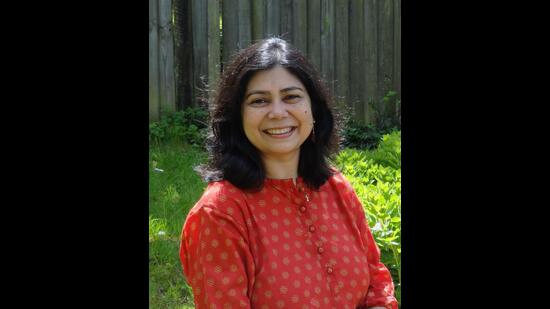
Prayaag’s experience in this respect was different. If his agent provided him with feedback that shaped the book, he was also lucky to have an editor in the UK (Louisa Joyner) who understood exactly what he was trying to do with his book even though she wasn’t intimately aware of political or social developments in India. “I thought she’d want to take out certain sections or modify them because global audiences might not be interested, but her edits, which were light but incisive, had more to do with pacing and style,” says Prayaag, adding that literary styles are different from culture to culture because each must evoke the society they draw from. “Even within the Western canon, a strong American voice tends to be so different from an English one. If you are trying to be true to your characters and your narrator, especially in a first-person narration, you cannot worry too much about how your book will be perceived by tastemakers in New York or Paris. You have to worry about making your character sound true.”
Das contends that the question before a writer is always the same: what will people make of this book? Living in New Zealand, she is getting published in India and the US even as her agent lives in Barcelona: “I think the world is smaller and more connected than we think. Most agents want to know they can sell your work in the international market, and your geographical location is the least of their worries.” She adds it’s objectively very hard to find an agent in the US/UK market for any author anywhere in the world. Publishing as an industry, she adds, can be risk-averse which makes it harder for people to break through. A big challenge for a diaspora writer like Divakaruni is convincing the agent and publisher that your book would be of interest to the American reader. “It helps if you can show them similar titles by other Indian authors that have done well in this country,” she says. It has become somewhat easier for her now because she is well-known, having won several American and international awards.
The publishing world, Ghose underlines, is a capitalist industry, mindful of its profits and losses. Writers living abroad have their own networks and stand a better chance of landing a prized deal because they are visible to readers abroad. However, most importantly, it is because they write in ways that are accessible to readers abroad. “Even if they are based in India now, like say Aravind Adiga, they have been educated abroad so their perspective is that much closer to the international readers’ except that they look Indian so what they write about India and Indians becomes that much more believable,” says Ghose. Proximity plays a role, but is not always the deciding factor. Kohli lives in the US but has not found a US publisher yet. She got one in the UK perhaps because the fact that she studied there allows British readers a way to connect with her work.
Deepti Kapoor’s success has also brought in sharp relief the kind of stories from India the West laps up. Novelist Chimamanda Adichie has warned us that if we hear only a single story about another person or country, we risk a critical misunderstanding. According to Ghose, while there might be a few notable exceptions, it looks like international publishers are still looking for a particular kind of story from India, involving poverty, violence, rape, exotica. “Contemporary urban stories with educated, privileged characters are a hard sell (unless you make it the subject of humour) because that’s not the India the gatekeepers know,” she says.
Shireen Quadri is the editor of The Punch Magazine Anthology of New Writing: Select Short Stories by Women Writers
The views expressed are personal
Enjoy unlimited digital access with HT Premium
Subscribe Now to continue reading

When Deepti Kapoor was done hammering out the final draft of her first novel, A Bad Character, she found it much easier to look to the US and UK— the two countries which exert the greatest literary influence on the rest of the world — in order to get published. Even though the journalist-turned-author had spent over a decade in the capital, where she studied journalism and Social Psychology at the University of Delhi, she felt she was a total outsider to the Indian literary scene, partly because she grew up in various places, including Bombay, Dehradun, and Bahrain. “There wasn’t any feeling of being part of it,” Kapoor tells Hindustan Times.
Looking back, Kapoor recollects how she had submitted the manuscript, somewhat naively, to David Godwin, the star literary agent credited with discovering Arundhati Roy, and the go-to-guy for Indian authors trying to crack the international market; he has also represented Vikram Seth, Aravind Adiga and Kiran Desai. She handed over the manuscript to Godwin in London in 2012. The astute agent, who got the staggering £250,000 advance for Vikram Seth’s A Suitable Boy in 1993, sold her novel to Knopf in the US, which published it in 2015. A year before, it was published in India in slightly different form by Hamish Hamilton, an imprint of Penguin Books India, and subsequently in the UK by Jonathan Cape, an imprint of Random House Group Limited, London.
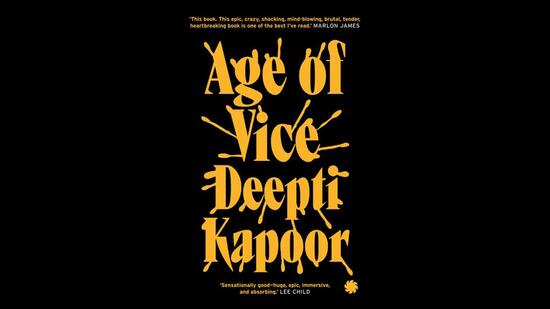
A tribute to Marguerite Duras’ The Lover, Kapoor’s debut revolved around a single woman navigating the quagmire of drugs, sex and abuse. Her publisher described it as an unforgettable hymn to a dangerous and exhilarating city (Delhi, where it is set in), and a portrait of desire and its consequences. “It was a small book, and not particularly commercial, so there was almost no publicity. And the sales reflected that. I was happy just to be published at all,” says Kapoor. When A Bad Character came out, she had been living in Goa. Currently based in Portugal, where she lives with her English writer and photographer husband, she is represented by Anna Stein of International Creative Management (ICM) Partners. Her second novel, Age of Vice, a mob saga set against the backdrop of modern India, is slated for release by Riverhead — which acquired it in a multimillion-dollar deal for the US rights — on January 3, 2023. The 550-page first instalment of a trilogy, Age of Vice¸ which has just been published in India by Juggernaut Books, has sold rights in 15 territories and will be available in 20 countries. What’s more, it is also being adapted for the screen, with a television series in the pipeline; the 20-way bidding war for the film rights was won by FX and Fox 21.
Kapoor’s meteoric success with just two novels, written within the span of a decade, is the stuff every writer’s dreams are made of. Her accomplishment is also a hat tip to her agent, Anna Stein. “She has championed me, challenged me when needed, protected me all the time, and worked an intelligent strategy to make sure my novel sold to the best publisher when it was ready,” says Kapoor.
The route she followed to get a toehold, and subsequently make a splash, in the global literary arena has been an easier way out for English-language writers to taste commercial success for decades: publishing giants in the US and UK have the wherewithal, and the marketing muscle, to push a particular title in multiple markets. Riverhead, for instance, has published a wide range of writers with global readership — from George Saunders and Khaled Hosseini to Junot Díaz and Marlon James.
Getting Published: How Books Cross Borders
Every writer’s publishing journey is different. While some writers, both desi and diasporic, breeze through the process to find a home for their books in the country of their residence or on foreign shores, for many others the breakthroughs happen after the frustrating vagaries of rejection — they are both fortuitous and serendipitous.

Bestselling author Chitra Banerjee Divakaruni was just 20 when she moved to the US in 1976 to earn her Master’s degree. It was during her tenure as a teacher at a college in the US that she was introduced to her agent, Sandra Dijkstra, by a colleague who had read and liked her work. Since then, Dijkstra has handled all of Divakaruni’s contracts — from her debut collection of stories, From Arranged Marriage: Stories (1995) to her latest novel, Independence (HarperCollins India), a story of three sisters whose lives are transformed after India is freed from the yoke of imperialism. “This is helpful because I don’t understand all the legal language and its implications,” says Divakaruni.
Dubai-based Indian-American author Avni Doshi, who was shortlisted for the 2019 Booker Prize for her debut novel, Burnt Sugar, published in India as Girl in White Cotton, worked with a UK-based agent for a few years. When the two went their separate ways, Doshi wasn’t sure what to do next. It was around then that Rijula Das — who made her own fictional debut in 2021 with A Death in Shonagachhi, a portrayal of the lives of sex workers — offered to introduce Doshi to her Indian agent, Kanishka Gupta. Soon, Writer’s Side, the literary agency run by Gupta, sold the manuscript to HarperCollins India. “Rahul Soni, my editor, believed the book had the potential to sell in the UK and US. He introduced me to agent Maria Cardona of Pontas Agency in Barcelona,” says Doshi. After Maria signed her, Doshi’s book sold in the UK, US, and after the Booker shortlist, it was published in about 25 other territories, and languages.

Anuradha Roy, who was longlisted for the Booker Prize for her third novel, Sleeping on Jupiter, didn’t have it this easy when she made her debut. An Atlas of Impossible Longing (2008), which catapulted her to literary stardom, was rejected by 16 agents and publishers abroad before it was eventually picked up by Christopher MacLehose, who had just started his own imprint, MacLehose Press, in the UK. Roy had met MacLehose, a former publisher associated with Harvill Press, at the London Book Fair a year after these rejections. “He read fifty pages of my manuscript at the fair, asked to read the entire thing, and signed me on after he had read the rest,” says Roy, who was longlisted for the 2015 Man Booker Prize for Sleeping on Jupiter (Hachette India).
Roy’s debut, published by the Free Press in the US, subsequently went into 16 translations abroad. While all of her novels have been published in the UK by MacLehose, they have been picked by various publishing houses, including Simon & Schuster, Graywolf and HarperCollins, in the US. Roy must be one of the very few Indian authors who doesn’t have an agent, carving out an international space for her novels with the single-minded devotion of her publisher, MacLehose. She keeps South Asia rights to herself so she could go to a publisher of her choice in India.
Anjum Hasan, whose new novel, History’s Angel, was acquired by Bloomsbury in a three-way auction, had a longtime London-based agent, who placed her books in territories such as Australia and Scandinavia. It was after she moved to Jacaranda Agency, run by Bengaluru-based agent Jayapriya Vasudevan, that she got a more comprehensive international deal. History’s Angel will appear from Bloomsbury UK, US and India in the summer of 2023. Hasan says that while it’s partly the agent’s resourcefulness, the good deal is perhaps also to do with timing: History’s Angel, a novel about the schisms between contemporary Indian public and private lives, seems to have struck a chord with the publisher with a substantial global presence.

Like Hasan, Kochi-based Anees Salim, too, is taking his writing to the world. His seventh novel, The Bellboy, has recently been released in the UK by Holland House. All of Salim’s previous titles were managed by Gupta. Two of his early novels (The Vicks Mango Tree and Tales From A Vending Machine) were published by HarperCollins). And the other two (The Blind Lady’s Descendants and Vanity Bagh were sold to Amaryllis and Picador India, respectively. In 2015, Penguin Random House acquired Salim in a deal brokered by Gupta to publish The Small-Town Sea (2017) and The Odd Book of Baby Names (2021).
If established writers like Hasan and Salim are going transnational only after having built an audience of loyal readers in India, the debutantes are having a go at it with their very first book. Based in Wellington (New Zealand), Rijula Das started the hunt for an agent to represent her work in the international market after A Death in Shonagachhi, which was published by Picador/PanMacmillan India, received rave reviews. While Gupta represents her book in the Indian subcontinent territory, world rights are managed by Maria Cardona Serra at Pontas Agency. Anna Soler Pont handles her AV rights.
Rijula’s novel was published in the US and other world territories as Small Deaths by Amazon Crossing, Amazon’s translation imprint, on September 13. While Russian rights have been bought by Ripol, French rights have been sold to Éditions du Seuil for publication in 2023. Drishyam Films has bought the adaptation rights for the silver screen, and a limited series based on the novel is also currently in the making. “Maria submitted my work to editors who she thought would be the right fit. Before long, along with rejections, I had a pre-emptive offer — valid for 24 hours, it indicates that the editor is making the best possible offer in their power and wishes not to go into auction. After discussing with my agent, we accepted this deal,” says Das.
Sonal Kohli, who grew up in Delhi and now lives in Washington DC, worked relentlessly for a year, querying and submitting to agents both in the UK and the US, but in the end when she almost gave up on the hope of landing an agent and a publishing deal outside the subcontinent, things happened quite serendipitously. After her debut collection of powerful short stories, The House Next to the Factory, was published by HarperCollins India and received good press, a UK publisher approached her to read the book and to enquire about the overseas rights. Within two days, the publisher made her an offer. “At that point, I requested him to give me some time while I went back and re-approached a couple of agents, who had already seen the manuscript and had responded favourably, but wanted me to make certain edits, some of which I actually ended up incorporating in the Indian edition,” says Kohli.

In a month’s time, she had both a US agent and a UK publisher. She came to know about the NYC-based Robin Straus Agency (RSA), which represents her work, through internet research. “RSA also represents the estates of RK Narayan, whose work I admire, and that was one of the first things that drew me to the agency,” says Kohli, whose book was published by Swift Press (UK) in November. She held on to the US and Canada rights to the book and sold only the UK and Commonwealth rights so that she could have a chance to find a publisher in the States.
Anindita Ghose, among the most talked-about debut authors from India in 2021, reached out to her international agents in December 2020 when HarperCollins India announced that it’ll publish her novel, The Illuminated, in July 2021. She was signed on by David Godwin in April 2021, but the UK deal happened nine months later — in January 2022. Her novel is forthcoming from Head of Zeus, an independent press in the UK which was acquired by Bloomsbury last year, in January 2023. When Ghose was pitching her novel to international publishers during the pandemic, they were reeling under a Covid-induced backlog, which they needed to clear. In the uncertain times, they needed to hedge their losses by picking more “bankable names”. “I wasn’t very confident that my book would be published abroad at all, but David remained optimistic. I feel I got lucky with the best of both worlds. I’m not very well-versed with the mechanics of the international publishing scene, but several authors have told me that independent presses are the way to go for the UK market as they pay much more attention to your books and go out of their way to champion them,” says Ghose.

Before Ghose, Prayaag Akbar had made his debut with Leila, a dystopian novel, and an indictment of India’s political degeneration and growing social chasms, which was published in the subcontinent by Simon & Schuster and in the UK by Faber & Faber in 2017. When it was in the works, Prayaag happened to mention it to a friend, and a colleague put him in touch with Shruti Debi of the Debi Agency. “I value her work as an editor, first and foremost. She read early drafts and sometimes helped me see what I was actually writing about. She certainly knows which sections of a draft are not working. If I can cut that flab out at an early stage, the final effort turns out better,” he says. Prayaag’s route to getting published in the UK was through Debi Agency, which has partners in England and New York who sent the book around to publishers there.
**
The publishing industry: A leviathan
Prayaag’s publisher, Simon & Schuster, a subsidiary of Paramount Global, has a strong footprint around the world with 50 imprints. It recently foiled the acquisition bid by Penguin Random House, the world’s largest book publisher with over 100 imprints, which publishes more than 2,000 titles a year. Weeks after a federal judge blocked Penguin Random House’s bid to buy Simon & Schuster — one of its main rivals, the publishing behemoth owned by the German group Bertelsmann scrapped the $2.2 billion merger deal.

Simon & Schuster’s win in the takeover battle comes at a time when the global publishing industry has witnessed concerted recovery in the wake of the pandemic as a recent report by the World Intellectual Property Organisation, one of the 15 specialized agencies of the United Nations, has revealed. Out of the UN’s 193 member states, 23 countries were part of a recent survey on publishing; they included the US and the UK. Collectively, these 23 countries made $71.6 billion in revenue last year compared to the 2020’s tally of $64.4bn. The convalescence in the US and Italy has been more notable; they have seen their publishing industry grow by 13.6 and 12.2 per cent, respectively, in the 2020-2021 period.
The Indian publishing industry, which has been slowly and steadily shaking off the blues caused by the coronavirus, is a leviathan unto itself. Trade book publishing in India constitutes a small fraction of the incredibly fragmented market with over 9,000 publishers. Dominated by educational book publishers, like Sage Publishing, Oxford University Press and S Chand & Co Ltd, the industry creates employment for more than 12 million people. It was valued at over ₹500 billion in 2019 and the forecast for 2024 predicts its continued growth: its estimated market size is set to touch ₹781 billion. Since India allows 100 per cent foreign direct investment (FDI) in the publishing sector, most top English publishers in India are subsidiaries of foreign companies.
**
It’s not the geography, stupid, but the story
The big and burgeoning book publishing market in India has emerged as the third biggest publishing hub after the US and the UK. Several authors getting published here also aspire to take their works to the overseas market, especially in the US and the UK, at some point. It’s their rite of passage, an acme of their ambition as an author yearning for visibility and big advances. Before this year’s Booker Prize-winning novel, Sri Lankan author Shehan Karunatilaka’s The Seven Moons of Maali Almeida, was published in the UK by Sort of Books, it came out under a different title, Chats with the Dead, in India.
For many writers, crossing over to another territory remains hard and littered with little struggles even though publishing literary agents have become proactive in recent years. It took Abdullah Khan, the author of Patna Blues (2018), over 10 years and more than 2,000 pitches/emails to finally find an agent in the US. “The US is the most difficult market to get published in than the UK. I found an agent only after my first book got published,” says Khan. His agent, Marly Rusoff of Marly Rusoff & Associates Inc, New York, has been pitching his first novel, as well as his forthcoming books, since last year. Someday, soon, he hopes things will work out.
Khan’s struggle symbolises the travails of every debut writer trying to find new readers abroad. However, things are different for most diaspora writers. 16 years ago, things happened in reverse for Shrabani Basu, who has been living in London since 1987. She sold the UK rights of her debut, Spy Princess: The Life of Noor Inayat Khan (2006), first and then Indian rights to Roli Books later. She didn’t have an agent for her first two books and signed on the dotted line in the contract. It was only later that she realised she had given away 50 per cent of the dramatic rights to the publishers, and so made very little herself. “I am wiser now about contracts,” says Basu, who is currently represented by Valerie Hoskins. “She took over from my earlier agent when I received several requests from major Hollywood studios for film rights for Victoria & Abdul (2010) and he requested her help as it was going to be a big contract,” says Basu.

Former diplomat and author Vikas Swarup didn’t have to struggle to get his first book Q&A (2005) published. After he had written four-and-a-half chapters during his posting in London, he sent it to 10 agents. When he didn’t hear back from anyone for about a month, he trawled the Internet where he met his first agent, Peter Buckman of The Ampersand agency, who found a publisher within a few months. “Books cross boundaries very easily if the content is good; any publisher would be willing to publish it. All publishers are hungry for good content; the only issue is that in India the culture of agenting is not so widespread whereas abroad the publisher will not look at your MS until it comes through an agent as it means that pre-vetting process has been done,” says Swarup, whose book was first published in the UK by Random House (now Penguin Random House) in 2005 and subsequently in the US and other regions.
If Swarup turned to Google for advice, in more recent years, writers have benefited from the ecosystem offered by creative writing programmes. After she finished her MFA from Columbia University, Diksha Basu ventured out into the world armed with a manuscript of what she thought could be a collection of short stories. A faculty member shared a list of literary agents with her. She reached out to Adam Eaglin at the Elyse Cheney Agency. His feedback transformed how she saw her book. Over the next two years, she worked closely with him to turn her collection of stories into a novel: Windfall, a comedy of manners centered on a family struggling to upgrade their lives in modern India, was released in the subcontinent in 2017. In the UK, it was published by Crown, an indie publishing house. “My agent allows me to focus entirely on the creative part of the work and I am always grateful to have him on my side. We have worked together for over seven years now and really grown together and continue to do so,” says Diksha.
Foreign agents sometimes include India/subcontinent distribution rights in the same package as UK rights, but it was important for Madhuri Vijay to have a dedicated Indian publisher for her debut novel The Far Field, a critique of Indian politics and its social dissonance which won the second JCB Prize for Literature in 2019. That is how she ended up with HarperCollins India. The Bengaluru-born author, who lives in Hawaii, was approached by Claudia Ballard of New York’s William Morris Endeavor (WME) after reading a story she had published in 2011. Years later, once Vijay had completed the manuscript for her novel, she signed with her. “Claudia has been steadfast and supportive from the start, and, in addition to everything else, she has an astute editorial eye,” says Vijay.
Diasporic writers fill a gap where there’s a desire for stories of difference, stories that are ‘exotic’ — sometimes, but not always, and not exclusively, says Kapoor. Crucially, they speak to publishers and readers in a literary idiom that’s more comfortable and familiar to them. “To me, Indian-American writers are usually more American than Indian, but Americans would see them as more Indian,” she says.
Kapoor holds that the stories by Indian writers are impenetrable to outsiders because they tend to be more inward-looking and, often, full of complex references. This makes the publishers resort to using hokey lines as blurbs to hard sell their titles beyond South Asian borders. “Realising that even though publishers and readers engage with and understand your book on a certain level, there’s an entire plane of Indian experience they cannot yet access. It can lead to some frustration in editing, when arguing for characters’ behaviours and motivations,” she says.

Prayaag’s experience in this respect was different. If his agent provided him with feedback that shaped the book, he was also lucky to have an editor in the UK (Louisa Joyner) who understood exactly what he was trying to do with his book even though she wasn’t intimately aware of political or social developments in India. “I thought she’d want to take out certain sections or modify them because global audiences might not be interested, but her edits, which were light but incisive, had more to do with pacing and style,” says Prayaag, adding that literary styles are different from culture to culture because each must evoke the society they draw from. “Even within the Western canon, a strong American voice tends to be so different from an English one. If you are trying to be true to your characters and your narrator, especially in a first-person narration, you cannot worry too much about how your book will be perceived by tastemakers in New York or Paris. You have to worry about making your character sound true.”
Das contends that the question before a writer is always the same: what will people make of this book? Living in New Zealand, she is getting published in India and the US even as her agent lives in Barcelona: “I think the world is smaller and more connected than we think. Most agents want to know they can sell your work in the international market, and your geographical location is the least of their worries.” She adds it’s objectively very hard to find an agent in the US/UK market for any author anywhere in the world. Publishing as an industry, she adds, can be risk-averse which makes it harder for people to break through. A big challenge for a diaspora writer like Divakaruni is convincing the agent and publisher that your book would be of interest to the American reader. “It helps if you can show them similar titles by other Indian authors that have done well in this country,” she says. It has become somewhat easier for her now because she is well-known, having won several American and international awards.
The publishing world, Ghose underlines, is a capitalist industry, mindful of its profits and losses. Writers living abroad have their own networks and stand a better chance of landing a prized deal because they are visible to readers abroad. However, most importantly, it is because they write in ways that are accessible to readers abroad. “Even if they are based in India now, like say Aravind Adiga, they have been educated abroad so their perspective is that much closer to the international readers’ except that they look Indian so what they write about India and Indians becomes that much more believable,” says Ghose. Proximity plays a role, but is not always the deciding factor. Kohli lives in the US but has not found a US publisher yet. She got one in the UK perhaps because the fact that she studied there allows British readers a way to connect with her work.
Deepti Kapoor’s success has also brought in sharp relief the kind of stories from India the West laps up. Novelist Chimamanda Adichie has warned us that if we hear only a single story about another person or country, we risk a critical misunderstanding. According to Ghose, while there might be a few notable exceptions, it looks like international publishers are still looking for a particular kind of story from India, involving poverty, violence, rape, exotica. “Contemporary urban stories with educated, privileged characters are a hard sell (unless you make it the subject of humour) because that’s not the India the gatekeepers know,” she says.
Shireen Quadri is the editor of The Punch Magazine Anthology of New Writing: Select Short Stories by Women Writers
The views expressed are personal
Enjoy unlimited digital access with HT Premium
Subscribe Now to continue reading

